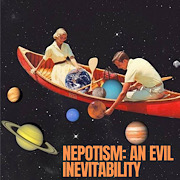|
euphronius posted:Stopped reading right there. Any article with 476 in it is automatically invalid.
|
|
|
|

|
| # ? Jun 5, 2024 07:04 |
|
Dejan Bimble posted:Could the romans have gotten lifted on opium, sure, but they'd need about a half acre or so of poppies to sustain a good habit over a year. That's hard if the acres aren't in India or some other low labor cost ideal weather state. I see your point on the climate but the Romans had, y'know, lots of slaves. Seems like just the thing for latifundia to me.
|
|
|
packetmantis posted:Maybe we should start blood sacrifices to improve healthcare. The American health Care system *is* a blood sacrifice, to the God Market.
|
|
|
|
|
skasion posted:Vitelliusí problems with grain supply had gently caress all to do with bad weather on the Rhine, it was because he was in Rome and the Egyptian grain shipping got cut off deliberately by the Flavians. The larger point that climatic problems > economic hardships > political turmoil is true, but not exactly news. And in general, anyone going "this one exact thing is the thing behind everything, re: historical event" tends to be full of poo poo anyway. Reality is always more complex than that. See: the volcanoes and hemorrhoids explanations of why Napoleon lost at Waterloo.
|
|
|
|
In general having a 'theory of everything' is one of the leading signs of crackpottery.
|
|
|
|
Single-cause events exist but they're never grand historical narratives, just individual instances. Even then it's not that common, everything gets more complicated the more you learn. Which is counter-intuitive to a lot of people I think.
|
|
|
|
Grand Fromage posted:Single-cause events exist but they're never grand historical narratives, just individual instances. Even then it's not that common, everything gets more complicated the more you learn. Which is counter-intuitive to a lot of people I think. it's sort of like the coastline paradox - every piece of history represents a simplification of a intractably complex series of events. this means you can increase the resolution indefinitely and only discover how little you know.
|
|
|
|
I remember being frustrated by how much historians would hedge when asked questions, then I learned a lot and do the same thing.
|
|
|
|
cheetah7071 posted:Isn't this a leading explanation for the bronze age collapse? One of them yeah. There was almost certainly severe drought in the Eastern Mediterranean around the early 12th century BC, and we know that around that time trade routes did collapse and many cities were destroyed, but itís hard to speak much more precisely than that about how exactly these factors were related. Probably the type example for this kind of situation is the eruption of Laki in Iceland in 1783, which spread an absolute poo poo ton of sulfur dioxide gas all over Europe and caused several years of terrible harvests in France, driving rural farmers into poverty and starving urban workers. It demonstrably contributed to the economic stress of the nation and this contributed to the political climate that brought on revolution. But nobody would say that the volcano caused the French Revolution, thereís much more to it than that; luckily we actually have the sources in this case to say what these other factors were.
|
|
|
|
skasion posted:One of them yeah. There was almost certainly severe drought in the Eastern Mediterranean around the early 12th century BC, and we know that around that time trade routes did collapse and many cities were destroyed, but itís hard to speak much more precisely than that about how exactly these factors were related. Probably the type example for this kind of situation is the eruption of Laki in Iceland in 1783, which spread an absolute poo poo ton of sulfur dioxide gas all over Europe and caused several years of terrible harvests in France, driving rural farmers into poverty and starving urban workers. It demonstrably contributed to the economic stress of the nation and this contributed to the political climate that brought on revolution. But nobody would say that the volcano caused the French Revolution, thereís much more to it than that; luckily we actually have the sources in this case to say what these other factors were. To some extent I think the article is exaggerating what the researchers were saying, as is common on these lovely science news sites. I think its interesting if they demonstrated a relationship between drought and mutinies, because in that case we can infer a direct and simple relationship that makes intuitive sense. However the connection from drought -> mutiny -> assassination makes for a much more tenuous association. Related, I'm going to go ahead and cross-post another article positing tenuous historical associations relating to Rome. https://www.washingtonpost.com/business/2018/08/06/how-year-old-roads-predict-modern-day-prosperity/?utm_term=.3991556e338c  quote:Now, a team of Danish economists has put forth a forceful case for one largely overlooked driver of economic development in Europe: roadways built by the Roman empire nearly two thousand years ago. They demonstrate that the density of ancient Roman roads at a given point in Europe strongly correlates with present-day prosperity, as measured by modern-day road density, population density and even satellite imagery of nighttime lighting.  quote:Now, thereís a big question of causality looming over all this: Can we really say that ancient roads caused greater economic development down the line? Or is it more accurate to say that more prosperous areas in the ancient world simply had more of a tendency to build roads to other places as a natural result of their prosperity? So in the paper described in this article, the authors suggest that the presence of Roman roads has made places more economically developed today than they'd be without them. I like it because it makes intuitive sense. Few would dispute that building modern roads and trains contributes to development, and as long as they are maintained I see no reason that contribution would dissipate. It also the suggests that good infrastructure, even if it seems very expensive today, is likely to pay off in the long (perhaps very long) term. It's also interesting to think about other situations where modern people still benefit from the ancient's efforts. For example when I look at the southern portions of the Grand canal in China, which is still used today over a thousand years after its construction, it definitely look more built up than the surrounding area. Which makes sense, because it's still used today.
|
|
|
|
They are basically just saying that the romans developed places and nothing catastrophic happened to force people to leave so they stayed developed. It'd be like in 2000 years if researchers go to Australia and decide that the most prosperous areas are where the British settled and built the convict camps in the 1800s and act like thats a big discovery. Like no poo poo, the major settlements aren't going to move short of something catastrophic happening. It's not like humans go, we lived here too many generations, lets build a new city with new infrastructure out in the wilderness and completely abandon everything else.
|
|
|
|
underage at the vape shop posted:They are basically just saying that the romans developed places and nothing catastrophic happened to force people to leave so they stayed developed. It'd be like in 2000 years if researchers go to Australia and decide that the most prosperous areas are where the British settled and built the convict camps in the 1800s and act like thats a big discovery. Like no poo poo, the major settlements aren't going to move short of something catastrophic happening. It's not like humans go, we lived here too many generations, lets build a new city with new infrastructure out in the wilderness and completely abandon everything else. That was my interpretation too. However when I posted this in Dnd, a lot of people were quick to call bullshit. Most people were vague in their criticisms, but I got the impression people's main criticism was that they thought it more likely the location of roads and development were both being determined by geography. For example, obviously both ancient and modern roads through the Alps will take the same route, just because both are following the same mountain passes. The study authors tried to address this, and I thought their counter was plausible. I remember not long ago Grand Fromage I think posted satellite imagery of the Roman road through northern Italy, and its really obvious that modern development was heavily influenced by the pattern they set down. It's literally just a straight line.
|
|
|
|
It's also quite possible that the same geographical causes that meant there were people there in Roman times / a reason for a road still apply today.
|
|
|
|
I think the routes being similar will just be because the cities are in similar spots. It's not like modern cars and trucks are that different to people and horses and the romans would have built roads to go from point a to b as efficiently as possible. Even in the mountain passes, if works already been done by your ancestors to level out an area for horse and cart, it's not much more work to widen and strengthen that compared to cutting a whole new road, even if a new road might be better. idk it's just a common sense thing to me.
underage at the vape shop fucked around with this message at 07:14 on Sep 1, 2018 |
|
|
|
I thought a key to their point was the development of the minor villages and towns along the new paths of the Roman roads. The cities you aim to connect each segment are one thing, as they'll tend to have a reason to get large in their particular place. But the smaller villages and all should end up getting bypassed or whatever more often. So seeing even those places persisting today is interesting. After all there's many towns along say old US surface highways that may have even been the simplest route. But when improved roads bypassed the highway tons of those towns collapsed over just a few decades, or only have one business standing.
|
|
|
|
In almost all cases the Romans built roads between already-existing population centers (and in some cases the Romans built their roads over per-existing trackways), and subsequently the presence of these roads made those population centers more attractive and thus a feedback loop was created which survived the collapse of the Western Empire. England is a case in point: the major Roman roads are referred to by their Medieval English names (Watling Street, Fosse Way, Ermine Street, etc.) because they remained in use despite the almost-complete replacement of the Romano-British culture by an Anglo-Saxon one. Vincent Van Goatse fucked around with this message at 08:28 on Sep 1, 2018 |
|
|
|
I read an article on conservation that proposed a similar idea in the modern day. When a new hydroelectric plant etc is built in virgin rainforest, a huge proportion of the environmental damage comes not from the dam construction but from the access road. Sure, the construction teams will use it. But so will cowboy lumberjacks, wildcat miners, poachers and villagers looking for firewood. And then to support them people will set up roadside cafes, garages, pitstops and so on. I can definitely see how a distant government's infrastructure programmes could reshape local economies without that ever being the intent. E: ^ Oh, so if they did mostly use existing routes then perhaps it's not so comprarable. Though you would still have the impact of a proper road that can support a cart where there might previously have been a single file scramble up a hill. Strategic Tea fucked around with this message at 11:52 on Sep 1, 2018 |
|
|
|
Strategic Tea posted:I read an article on conservation that proposed a similar idea in the modern day. When a new hydroelectric plant etc is built in virgin rainforest, a huge proportion of the environmental damage comes not from the dam construction but from the access road. Even the power lines are completely disruptive to the natural ecosystems. In Canada, the Woodland Caribou are seriously threatened because cutting straight lines through the woods is basically the equivalent of giving motorocycles to wolves, and now each wolf pack has a much greater geographical range, putting far more predatory pressure on each herd.
|
|
|
|
CommonShore posted:the equivalent of giving motorocycles to wolves, and now each wolf pack has a much greater geographical range, putting far more predatory pressure on each herd.
|
|
|
|
CommonShore posted:Even the power lines are completely disruptive to the natural ecosystems. In Canada, the Woodland Caribou are seriously threatened because cutting straight lines through the woods is basically the equivalent of giving motorocycles to wolves, and now each wolf pack has a much greater geographical range, putting far more predatory pressure on each herd. 10/10 would read this fanfic.
|
|
|
|
CommonShore posted:Even the power lines are completely disruptive to the natural ecosystems. In Canada, the Woodland Caribou are seriously threatened because cutting straight lines through the woods is basically the equivalent of giving motorocycles to wolves, and now each wolf pack has a much greater geographical range, putting far more predatory pressure on each herd. 
|
|
|
|
RIP Wolfbike
|
|
|
|
That Roman road hypothesis kind of falls apart when you note that Germany east of the Rhine and the Nordics are very prosperous places today while North Africa, previously breadbasket to the empire, is very much less so.
|
|
|
|
Cyrano4747 posted:That Roman road hypothesis kind of falls apart when you note that Germany east of the Rhine and the Nordics are very prosperous places today while North Africa, previously breadbasket to the empire, is very much less so. To be fair, the Romans showing up and building roads everywhere probably showed the Germanics not under their control that roads are a good thing to have and the Nordics have tons waterways, which could have accelerated their own prosperity a lot, too. Also, the Romans did a lot of stuff east of the Rhine, too. They just didn't stay for very long, compared to the rest of their empire.
|
|
|
|
Libluini posted:To be fair, the Romans showing up and building roads everywhere probably showed the Germanics not under their control that roads are a good thing to have and the Nordics have tons waterways, which could have accelerated their own prosperity a lot, too. Sure but by that metric anything can be credited for any advance anywhere.
|
|
|
|
Cyrano4747 posted:Sure but by that metric anything can be credited for any advance anywhere. Well, yes? Instead of talking about a Roman road hypothesis, we should rather name it "trade way hypothesis" or something, to cover all the bases.
|
|
|
|
Cyrano4747 posted:That Roman road hypothesis kind of falls apart when you note that Germany east of the Rhine and the Nordics are very prosperous places today while North Africa, previously breadbasket to the empire, is very much less so. Climate change trumps roads, though? So does oil. Norway was poor as gently caress within living memory.
|
|
|
|
Cyrano4747 posted:That Roman road hypothesis kind of falls apart when you note that Germany east of the Rhine and the Nordics are very prosperous places today while North Africa, previously breadbasket to the empire, is very much less so. These are good points, but the authors also put a lot of thought into addressing them. So interestingly when the study authors applied their model to North Africa, they found no relationship between modern indices of development and the distribution of Roman roads. So why would roads have a relationship with development in Europe but not in North Africa? Well in North Africa, following the Arab invasions, land transport by oxcart disappears, to be replaced by caravans of camels. Unlike an oxcart, camels don't require roads, it may even be disadvantageous as traveling on a road would prevent the animal from grazing as it moves. Therefore the authors posit that the effect of the roads would have declined over time. On Germany, well I think it's interesting, just eyeballing a map here, that many of the wealthiest and most populous parts of the country actually do sit on old Roman roads. I'm looking along the Rhine and in the southwest corner of the country. However more importantly, this kind of research is not meant to prove that the location of ancient roads completely determines the distribution of all modern wealth and population. That would be ridiculous. The weight of subsequent history and geography are going to exert enormous separate influence. Rather instead what i think the authors are trying to get at is that by having invested in this kind of infrastructure, these places are more wealthy than they would have been without the roads. I think this is easier to agree with if instead we talk about ancient structures which are still in use.  Basilica of Constantine at Trier, Germany, 306 AD It's a Roman Church. It's still in use. It's still contributing to the well being of local people in a very direct way. People can worship there, socialize, work, etc, and its presence probably increases adjacent property values. It's directly contributing to GDP. Compared to an alternative universe in which Constantine spent the resources used in ours to build the church on nutmeg or something equally transient, the people of Trier today are measurably better off. I suspect the influence of Roman roads may be less direct, perhaps more akin to the influence of volcanoes on the French revolution, but that doesn't mean its not important. Squalid fucked around with this message at 17:41 on Sep 2, 2018 |
|
|
|
But once you remove north Africa from the equation and hand wave Northern Europe away as oil wealth and dismiss Bavaria and Denmark youre basically left asking why Western Europe is economically prosperous and at that point there are things that explain it a LOT better than Rome. Centuries of extractive colonialism for one. Coal distribution and how that affected industrialization. Patterns of warfare for another - what areas get a few centuries of relative practice to flourish at key times vs who becomes the supermarket for this months roving band of mercenaries? The development of government institutions that allow a trading middle class to flourish. Etc. etc. Iím not saying Rome has zero to do with it but itís far from an only or even primary explanation.
|
|
|
|
It's more specific areas within western Europe Than the region as a whole
|
|
|
|
feedmegin posted:Climate change trumps roads, though? So does oil. Norway was poor as gently caress within living memory. Oil is the reason Norway is *unusually* rich for a western european country now, but it's not the reason Norway is a prosperous western european country in the first place.
|
|
|
|
Germany has no oil, few Roman roads and had basically no colonies and is still rich. I don't see how we could have enough data to draw a more detailed conclusion than "infrastructure is good".
|
|
|
|
It seems plausible to me that like within France or Spain Roman roads correlate with modern prosperity. Arguing causation is much harder
|
|
|
|
Jeb Bush 2012 posted:Oil is the reason Norway is *unusually* rich for a western european country now, but it's not the reason Norway is a prosperous western european country in the first place. Again, pre-oil 30s etc vintage Norway was poor as gently caress, sorry. It was not 'prosperous'.
|
|
|
|
OctaviusBeaver posted:Germany has no oil, few Roman roads and had basically no colonies and is still rich. I don't see how we could have enough data to draw a more detailed conclusion than "infrastructure is good". actually it has a LOT of holy roman roads!
|
|
|
|
feedmegin posted:Again, pre-oil 30s etc vintage Norway was poor as gently caress, sorry. It was not 'prosperous'. I'm not sure why you're invoking "30s etc vintage Norway", given that oil wasn't discovered until the late 60s and didn't become a big economic driver until quite a bit later.
|
|
|
|
Cyrano4747 posted:But once you remove north Africa from the equation and hand wave Northern Europe away as oil wealth and dismiss Bavaria and Denmark youre basically left asking why Western Europe is economically prosperous and at that point there are things that explain it a LOT better than Rome. I think you are trying to make the study say something it doesn't. For example, if you'd look at the article, you'd see that in fact the study doesn't make any inference about areas outside the Roman Empire at all. There's no hand-waving Norway away because it is outside the data universe. To engage with this study we can compare a few hypotheses: 1) There is no relationship between the location of Roman roads and modern economic activity and population. Whatever effect they had has been washed away by subsequent history. 2) Road and development indicators will be correlated, however the relationship is driven by hidden variables. The location of rivers, mountains, and oceans determined the location of both modern economic activity and Roman roads. 3) Roads and development are correlated and the relationship is causal, with Roman roads producing long term increases in economic activity that persist until today. 4) Roads and development are correlated, however roads did not create long term increases in wealth, they merely changed its distribution, concentrating it near themselves and impoverishing areas cut off from the network. Hypothesis 1) Is going to be hard to sustain, as you'd have to dispute the statistical methods of the paper's authors. I didn't dig into the stats they used by I think it was a fairly simple geographic regression performed on map pixels after rasterizing road density and development indicators. Hypothesis 2) Is the most strongest counter-argument. It's no surprise the Romans built roads along the Rhine, because it is a major transportation system itself with good freshwater and farmland. It could be mere coincidence that both ancient and modern people concentrated development in the area. HOWEVER, the lack of correlation in north Africa becomes a serious problem for this theory. If the distribution of roads and development were both determined purely by geography, I would expect the relationship to hold more-or-less everywhere. Geography doesn't exactly change that quickly. If roads can instead produce long term economic gains, it actually becomes easier to explain the difference between Europe and north Africa. If people don't use roads, because they ride on camels instead of carts, we would expect the subsequent tide of 1500 years of history to wash away any effect that once existed, just as was observed. It's only through use the the benefit is accrued. Hypothesis 4) I don't have a good counter for, and seems plausible. This is actually a debate that sometimes occurs today when cities argue that putting in a train line will produce economic gains. People will counter that it merely concentrates activity around the new line, instead of somewhere else. I guess I'd just say people are better off if you build good things than without them, but its hard to prove that.
|
|
|
|
It does remind me of how I've heard that the best way to make affordable housing is to go back in time 20 years and make housing then, because by the time it's a few decades old it'll become affordable. Offhandedly, it's not much more than another way to say "well gosh wasn't Rome swell" but there's probably a whole host of studies that you could do to look further into the matter, like whether migration rates increased along Roman roads, or even post-Roman control, how much areas connected by Roman roads, even if independent, would've fared in relation to areas that weren't, or even trying to compare Roman roads after the Romans to contemporaries made by less logistically able societies. I wonder if you could get data for roads laid/how many years they survived that you could compare to the ancient roads. I'd be very interested to hear them do studies like that, but otherwise, people have been crediting the Romans for every single little thing about Europe for centuries.
|
|
|
|
Cyrano4747 posted:But once you remove north Africa from the equation and hand wave Northern Europe away as oil wealth and dismiss Bavaria and Denmark youre basically left asking why Western Europe is economically prosperous and at that point there are things that explain it a LOT better than Rome. And apart from ignoring the areas without roads that did get wealthy, you also have to take into account the areas that did get roads that have nothing going for them today, even in Western Europe. The area between Bordeaux and Toulouse has plenty or Roman roads, presumably because it connected Italy, Gaul and the northern coast of Spain and was colonized thoroughly and early, but add fifteen centuries and nothing's left. The dynamics that made Paris the center of France, especially in the last 300 years, were just too strong to fight any residual effects of Roman influence, roads or not. The same goes for the interior of Aragon. Unitary states with a strong center (France, Spain) versus states that united only late in history (Germany, Italy) do much more to explain differences in prosperity and development than the Roman roads thing.
|
|
|
|

|
| # ? Jun 5, 2024 07:04 |
|
Jeb Bush 2012 posted:I'm not sure why you're invoking "30s etc vintage Norway", given that oil wasn't discovered until the late 60s and didn't become a big economic driver until quite a bit later. Hence the 'etc', the place wasn't rich after the war either.
|
|
|










































